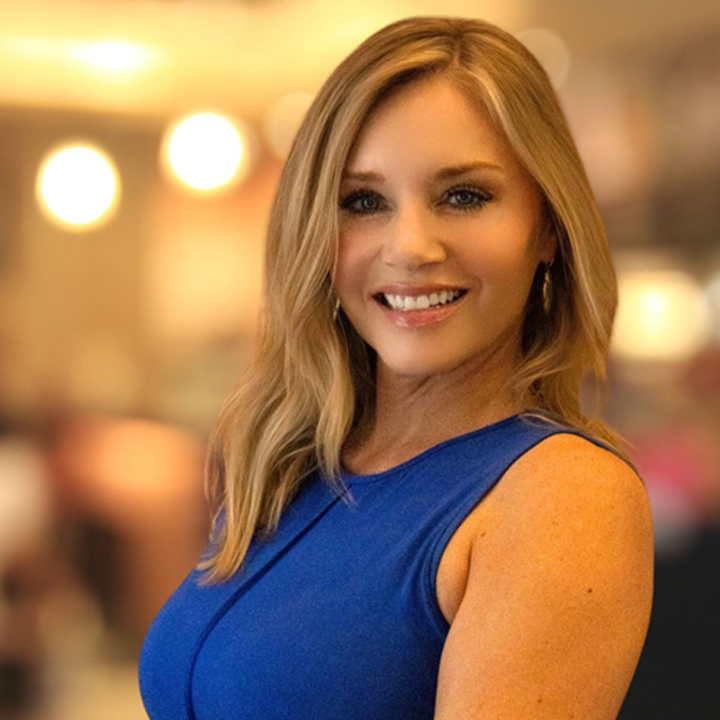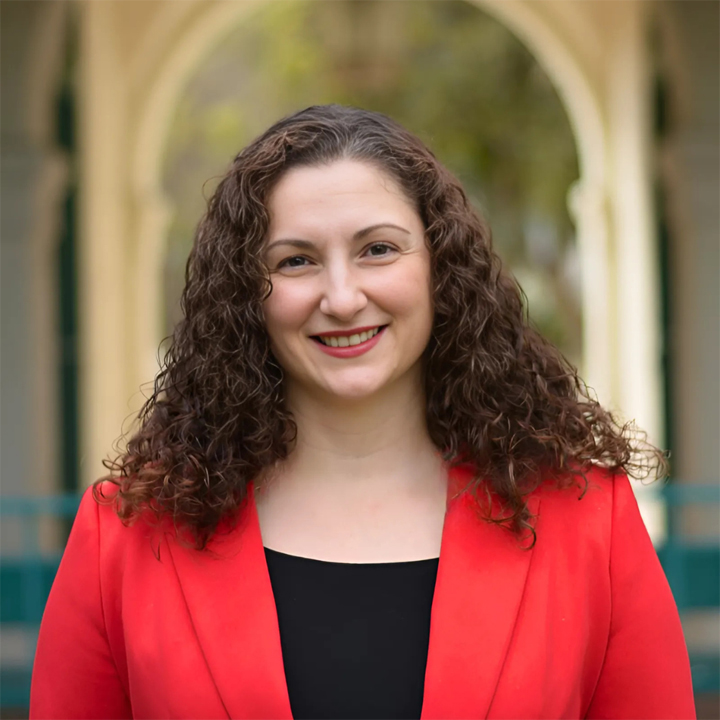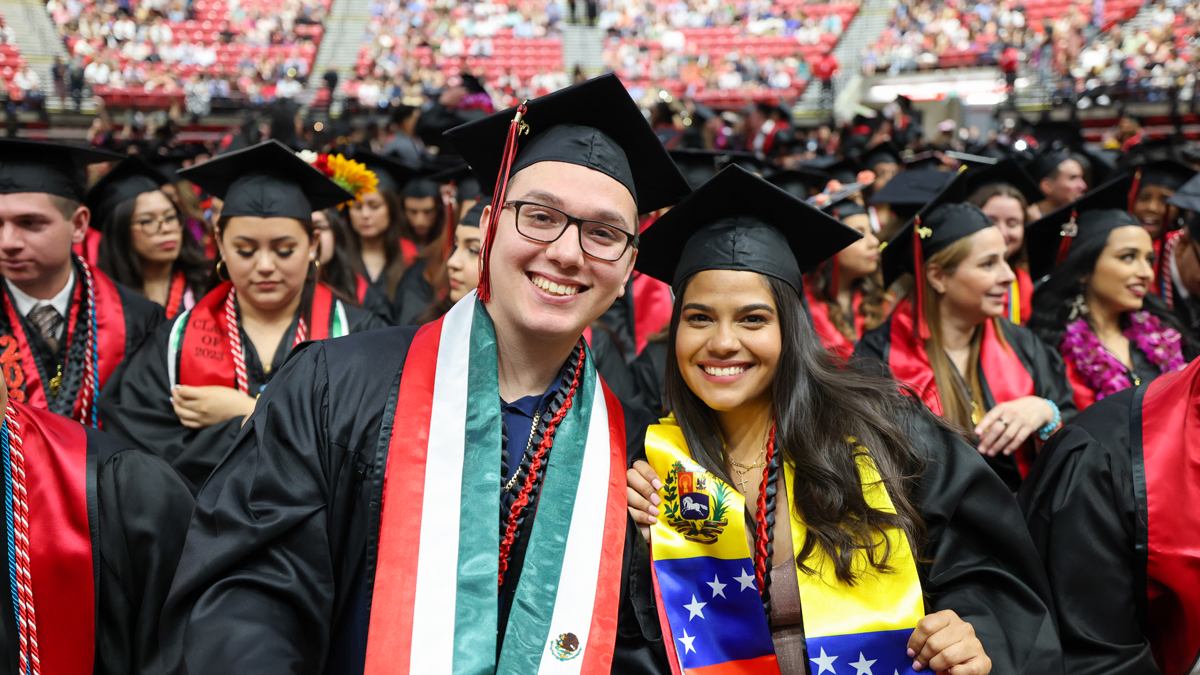SDSU’s ALEO workshops provide resources for local officials

San Diego State University’s Academy for Local Elected Officials (ALEO) brings together community leaders from across the region to strengthen the skills, relationships, and knowledge that make local government work—a program born from the community’s own call for stronger leadership and collaboration.
Founded in 2024 within SDSU’s School of Public Affairs, ALEO offers a forum for locally elected officials to share their experiences and learn practical skills to better support San Diego and its most pressing challenges.
Darrell Pugh, professor emeritus of public affairs, explained that the idea stemmed from the community itself. ALEO grew out of a city management fellowship program designed to place graduate students directly under the guidance of city managers to gain hands-on experience while completing their master’s in public administration.
“When we met with city managers across the county to get their input, one of the things that came up in the discussion was that it would be great if we had a resource like this for council members and our elected officials, particularly our newly elected officials. We heard that message, met with our advisory board, and they endorsed the idea,” Pugh said.
Since then, ALEO has evolved into a collaborative regional effort that connects elected officials, city managers, and SDSU faculty through training and research.
“Cities often operate in a bubble. City council and city managers are focused on the interests of their city. They should be, because that’s what they were elected and appointed to do. But so many of the issues that face the cities actually spread across the region. One of the main thrusts of ALEO is to create that nexus. We bring these officials together from these diverse jurisdictions… and we get them to experience the fact that they’re not alone,” Pugh said.
For Dominika Bukalova, an assistant professor of public affairs and the director of ALEO, the Academy embodies SDSU’s broader mission.
“I always think about our university motto, ‘Leadership starts here.’ I think we all take that to heart on our planning team. It’s an amazing opportunity for us to be able to bring participants together from the community, not just for networking opportunities, but also for the skills and the competencies that they need to help support their leadership practice,” Bukalova said.
Bukalova shared that ALEO workshops integrate both process-oriented and issue-oriented learning. Previous sessions have addressed topics such as emergency management, housing, and budgeting.
“We want to help them be successful legislators at the local level. We talk to elected officials every month to ask what’s on their radar—what issues are impacting them and what tools do they need to effectively deal with the issues that impact their community,” Pugh said.
In addition to training, ALEO promotes collaboration between faculty and students through the Institute for Innovative Governance at SDSU.
“There are four MPA students who are working with us this semester, and they’re working on a variety of related projects, including research relating to not just this workshop but also the budget and fiscal policy workshop that we’ll have in the winter and our next conference that we’re planning after the election cycle,” Bukalova said.
Their research gives students hands-on experience and helps ALEO provide practical resources to elected officials.
Fall workshop
The fall 2025 ALEO workshop featured “The Three Cs of Effective Media Communication: Confidence, Clarity, and Connection for Elected Officials.” The workshop is led by Claire Strong, a former BBC anchor and longtime television and radio journalist for outlets such as KPBS.
Strong first met with ALEO by serving as the emcee for the Academy’s January 2025 conference. Her captivating presence and ability to connect with the audience left a strong impression on participants, and many of them expressed interest in additional media and communication training. The positive response inspired her return this fall, where she leads a more in-depth workshop aimed at helping elected officials enhance their public communication skills.
“Many of them are elected into public office and they have never had any type of official training. Every time they speak in public… they are representing their city. They are representing not only themselves, but the people who elected them. So it's very important that they are comfortable and confident when it comes to messaging,” Strong said.
Earlier this year, Strong launched StrongHER Media, a communications coaching company that empowers people to speak with strength and authenticity. Through her framework built on confidence, clarity, and connection, Strong teaches professionals such as attorneys, athletes, and politicians to navigate high-pressure speaking situations with presence and purpose.
“This workshop is really designed to give them the confidence to be able to speak clearly, stay on message, and take on any situation,” Strong said.
ALEO workshops build on these concepts, giving local leaders hands-on training to improve their messaging and strengthen their presence in front of a community.
“My hope is that all the delegates leave the workshop feeling confident when they speak in public. That they are able to connect with the public, which ultimately is who they work for,” she said.
Strong also said that a communicator’s energy often speaks louder than words. She explained that body language, tone, and presence set the stage for any interaction, even before a word is spoken.
“What sets a great communicator apart is their energy, because energy is infectious. And if you arrive with the right energy… you set the tone with your energy. That would be my biggest takeaway,” she said.
The Future
According to Bukalova, the workshops aim to support participants with tangible skills while also building greater collaboration among local leaders.
“We want to provide opportunities for relationship building and for connecting to cutting-edge research happening here at SDSU,” she said.
ALEO’s mission continues to uplift smaller cities that may not have the same resources as larger municipalities. By connecting local leaders with SDSU faculty, research, and training opportunities, the organization is bridging the gaps.
Bukalova reflected, “Hopefully we all walk away with a region where we’re addressing issues in a more collaborative and constructive way.”
For more information on the SDSU School of Public Affairs and the Academy for Locally Elected Officials, visit ALEO.


